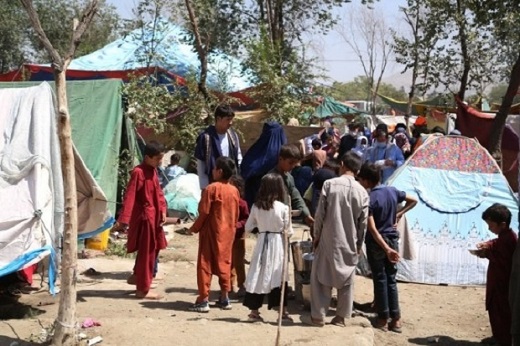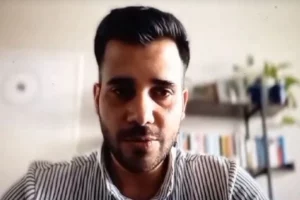Deterioration in the humanitarian situation continues to unfold in Afghanistan with nearly 300,000 people having been newly displaced in the country over the last two months. In areas where people have recently fled, including Kabul, field reports from the World Health Organization (WHO) have indicated that there are increasing cases of diarrhoea, malnutrition, Covid-19-like symptoms, and reproductive health complications.
In its latest 'Afghanistan Emergency Situation Report', the WHO said that trauma injuries and health needs have increased because of the recent conflict, requiring emergency medical services and specialized doctors. However, despite the rising health needs, attacks on health care facilities and personnel continue to strain an already fragile health system, the WHO listed in its situation overview.
As several thousand left their homes and moved to Kabul over the past few weeks in search of safety,
the health services were put on hold since Sunday for the internally displaced persons due to the insecurity in and around the Afghan capital.
The WHO said that there is an urgent need for reproductive, maternal, newborn and child health (RMNCH) services to be provided to newly displaced people in Kabul and other cities. Besides, mental health and psychosocial counseling services are also needed for people suffering from the impacts of conflict.
With only 5% of the population vaccinated, the conflict is also impacting Covid-19 vaccination across the country and delaying routine immunization, which could lead to secondary health emergencies. Crowding at health facilities and in camps for displaced people also limits implementation of infection prevention protocols, increasing the risk of Covid-19 transmission and other disease outbreaks.
The disruptions due to the conflict are delaying critical health supplies from being shipped into the country and affecting distribution of medical supplies and equipment to health facilities which were already facing shortages.
According to the WHO, an unimpeded and sustained access to humanitarian assistance, including essential health services and medical supplies, is a critical lifeline for millions of Afghans, and must not be interrupted.
The organisation said that there is an immediate need to ensure continuity of health services across the country, with a focus on ensuring women have access to female health workers. An additional funding of US$ 6.6 million is also needed for the urgent health response following the escalating conflict.
Also Read: Ahmad Massoud, Amrullah Saleh and Bismillah Mohammadi lead Panjshir resistance against Taliban




















